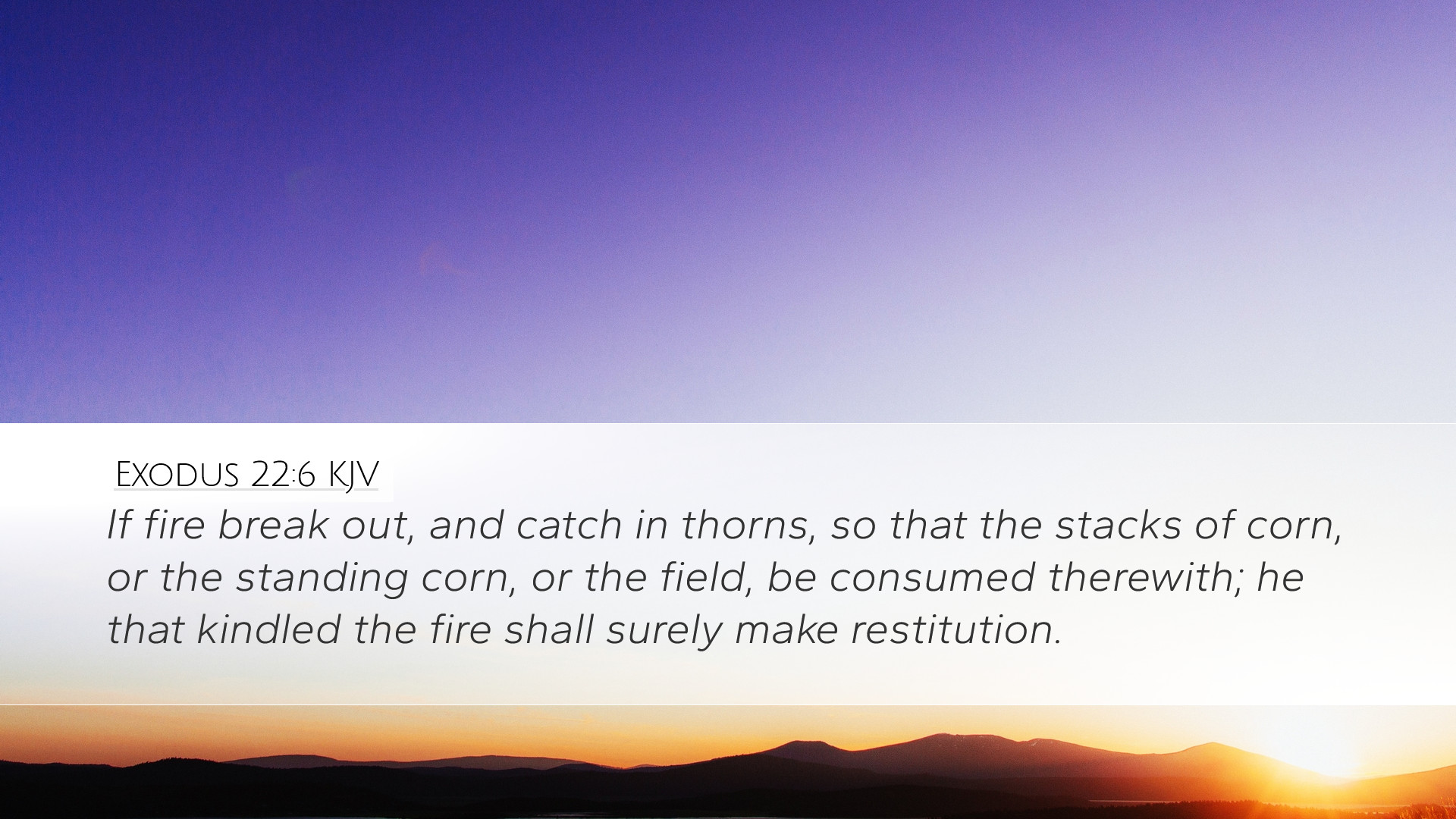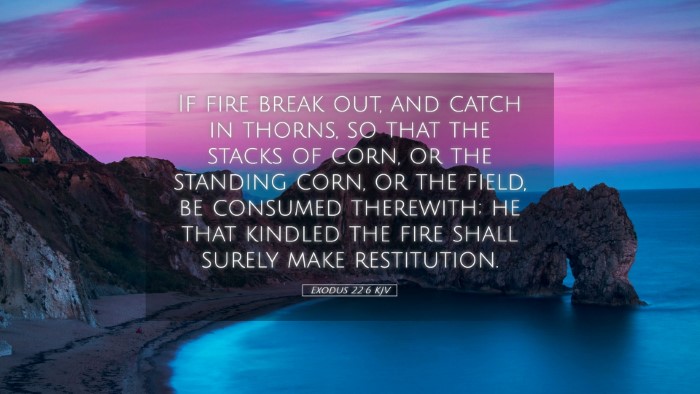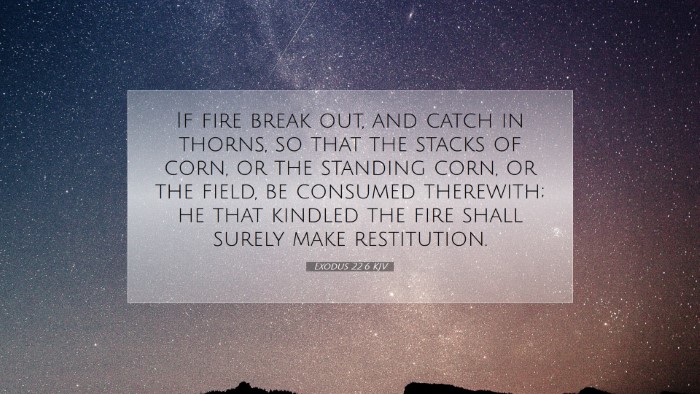Commentary on Exodus 22:6
Exodus 22:6 states:
“If fire breaks out and catches in thorns so that the stacked grain or the standing grain or the field is consumed, he who started the fire shall make full restitution.”
Contextual Background
Understanding this verse requires a grasp of the broader context within the Mosaic Law. The regulations in Exodus, particularly chapters 21-23, outline various social and ethical responsibilities that the Israelites were to maintain as a community. This specific verse addresses the liability for damages caused by neglectful behavior, emphasizing personal responsibility and the importance of property rights.
The Theological Significance
Interpretations of Exodus 22:6 shed light on key theological themes, such as justice, restitution, and accountability. The principle of making restitution for damages caused is foundational, reflecting God's justice and the necessity of ethical living within the community.
Insights from Matthew Henry
Matthew Henry emphasizes the serious nature of property rights in the eyes of God:
-
Responsibility for Actions: Henry highlights that this law establishes a clear responsibility for one's actions, affirming that negligence can lead to severe consequences. The one who starts the fire may not have intended harm, yet is obliged to make reparations.
-
Community Welfare: He argues that these laws were designed for the well-being of the community, ensuring that individuals live responsibly to protect their neighbors' properties and livelihoods.
Insights from Albert Barnes
Albert Barnes offers a detailed examination of the responsibilities outlined in this verse:
-
Literal Interpretation: Barnes interprets the text literally, arguing that the fire represents both physical and moral destruction. He proposes that the principle extends beyond the literal context to include the broader implications of negligence in one's duties.
-
Restitution as a Moral Imperative: He notes that the requirement of restitution is a moral obligation for the responsible party. This mirrors the divine justice system, holding individuals accountable before God.
Insights from Adam Clarke
Adam Clarke provides a comprehensive view, blending social, historical, and practical perspectives:
-
Social Implications: Clarke remarks on the social implications of this law, stating that negligence must be treated seriously, as it can disrupt the social fabric of the community.
-
Legal Framework: He also discusses the legal nuance in ancient Hebrew culture, suggesting this verse exemplifies the intersection between law and ethics, preserving order and justice.
Practical Applications
The message in Exodus 22:6 is profoundly relevant today:
-
Ethics in Leadership: For pastors and leaders, this verse emphasizes the importance of ethical stewardship and the need for accountability in various roles within the community.
-
Personal Responsibility: Believers are reminded of their duty to not only avoid harm but also to rectify any unintentional damages they may cause, ensuring harmonious relationships.
Conclusion
Exodus 22:6 serves as a crucial reminder of our responsibilities to one another and the importance of maintaining justice in our interactions. Through the insights of esteemed commentators like Matthew Henry, Albert Barnes, and Adam Clarke, we gain a richer understanding of how ancient laws can inform our modern ethical frameworks, establishing a more just and responsible society.


